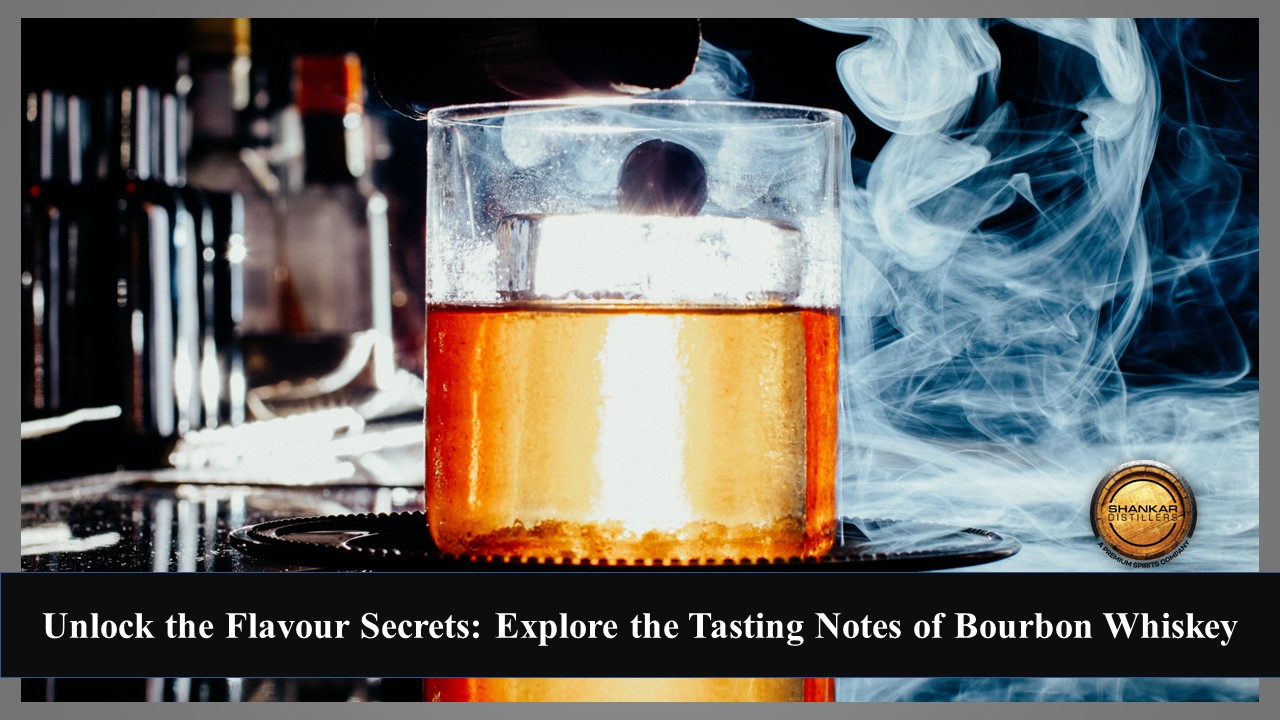The Bourbon Experience: Tasting Notes and Whiskey Distillers' Legacy - PowerPoint PPT Presentation
Title:
The Bourbon Experience: Tasting Notes and Whiskey Distillers' Legacy
Description:
Discover bourbon's allure: caramel, spice, and more. Delve into its history, craftsmanship, and unique variations shaped by skilled Whiskey Distillers. – PowerPoint PPT presentation
Number of Views:2
Title: The Bourbon Experience: Tasting Notes and Whiskey Distillers' Legacy
1
Unlock the Flavour Secrets Explore the Tasting
Notes of Bourbon Whiskey
2
Bourbon whiskey, America's native spirit, has a
storied history and is renowned for its rich,
complex flavors. Distilled from a mash bill that
primarily consists of corn and aged in charred
oak barrels, bourbon undergoes a transformative
process that imparts unique characteristics to
its taste. Unlocking the flavor secrets of
bourbon whiskey is akin to embarking on a
fascinating sensory journey that reveals a myriad
of aromas and tastes. This journey is made
possible by the skill and artistry of the Whiskey
Distillers, who, through generations of
expertise, have perfected the craft of creating
exceptional bourbon. In this article, we delve
into the nuances of bourbon tasting notes and
explore what makes this iconic spirit so special.
3
The Basics of Bourbon Whiskey Before we delve
into the tasting notes, it is essential to
understand the fundamental elements of bourbon
whiskey. By law, bourbon must be produced in the
United States and contain at least 51 corn in
its mash bill. Other grains, such as rye, barley,
or wheat, make up the remaining percentage, each
contributing distinctive flavors. The aging
process plays a pivotal role in shaping bourbon's
taste. It must be aged in new, charred oak
barrels, and the aging period significantly
impacts the final product. As the bourbon
matures, it interacts with the wood, gaining
color, complexity, and flavors from the oak, such
as vanillin and caramel.
4
- Tasting Notes The Sensory Exploration
- Color The journey begins with the visual aspect
of the spirit. Bourbon's hue typically ranges
from pale gold to deep amber, influenced by the
aging process and the charred oak barrels.
Younger bourbons tend to exhibit a lighter color,
while extended aging yields a darker, richer
shade. - Aroma Swirling the bourbon in a glass releases
its aromatic bouquet. The nose of bourbon whiskey
can be diverse, often comprising notes of
caramel, vanilla, oak, and honey. Depending on
the mash bill and distillation techniques,
additional aromas may include hints of
butterscotch, baking spices, fruits, and even
floral undertones. - Palate Sipping bourbon is a multi-layered
experience, as it unfurls various flavors on the
palate. The first taste often reveals the
sweetness from the corn, with flavors like
caramel, toffee, and butterscotch dancing on the
tongue. As the bourbon continues to coat the
mouth, the influence of rye, wheat, or barley may
manifest as spiciness or creaminess.
5
- Body and Mouthfeel The body refers to the
texture of the bourbon in the mouth, which can
range from light and delicate to full-bodied and
viscous. The mouthfeel of bourbon can be
influenced by factors like the distillation
process, the alcohol content, and the presence of
natural oils from the wood. - Finish The finish is the lasting impression that
bourbon leaves after swallowing. A well-aged
bourbon may have a long, warm finish with
lingering flavors of oak, spice, and sweetness.
Some bourbons may even present subtle smokiness
or earthy undertones.
6
- Notable Bourbon Variations
- While all bourbons share common elements, the
tasting notes can vary significantly based on the
distillery, mash bill, and aging process. Some
notable variations include - Wheated Bourbons Replacing rye with wheat in the
mash bill results in a softer, smoother bourbon.
Examples include Maker's Mark and Pappy Van
Winkle. - High-Rye Bourbons These bourbons contain a
higher percentage of rye in the mash bill,
contributing to spicier and more robust flavors.
Bulleit Bourbon is a famous high-rye example. - Single Barrel Bourbons These bourbons are not
blended and come from a single aging barrel,
showcasing unique and concentrated flavors.
Blanton's Single Barrel is a classic
representation.
7
- Conclusion
- Unraveling the tasting notes of bourbon whiskey
is a delightful journey through a tapestry of
flavors. The interplay between corn, other
grains, oak barrels, and time creates an
extensive range of aromas and tastes, making
bourbon a cherished spirit among connoisseurs and
enthusiasts alike. From its inviting caramel and
vanilla aromas to its diverse palate of sweet,
spicy, and woody notes, bourbon remains a
timeless and alluring beverage, steeped in
American tradition and craftsmanship. So, pour
yourself a glass of bourbon, and let your senses
embark on this captivating exploration of flavor
secrets. Cheers! - Useful Links
- Bourbon whiskey recipes
8
Thank You
Follow us on































